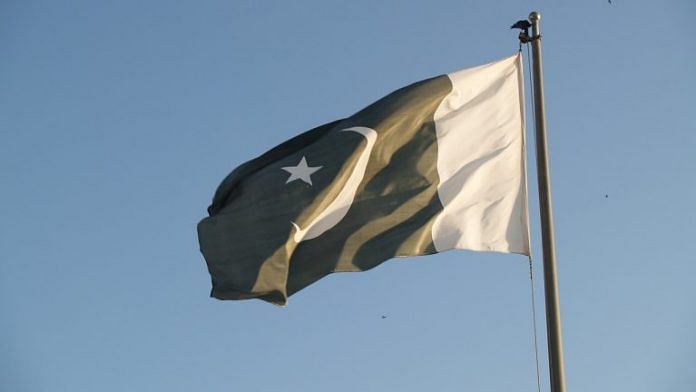Pakistan Tuesday saw yet another killing over allegations of blasphemy, this time of a 21-year-old female teacher in Dera Ismail Khan. But what is rare about this murder is that all accused are females and they allegedly committed the crime based on the dream of a 13-year-old.
The teacher engaged at a seminary in Khyber Pakhtunkhwa’s Dera Ismail Khan was murdered by a female colleague and two students outside the Jamia Islamia Falahul Binaat over “difference of opinion on religious issues”. All three have been arrested and murder weapon recovered. The accused are Umra Aman (24), Razia Hanfi (21), and Aisha Nomani (17). According to District Police Officer Najamul Hasnain, a 13-year-old female relative of one of the accused dreamt of the victim committing blasphemy, and hence, she was “ordered to slaughter”.
The relative who had the dream has also been arrested along with a register containing the details of the dream, wherein “the Prophet PBUH had directed them to slaughter” the victim as she had committed blasphemy against the Prophet.
Pakistani publication Dawn quoted that the first information report (FIR) stated that the victim was found lying in a pool of blood. Her throat was slashed using sharp objects. The victim hailed from the South Waziristan district and belonged to the Mehsud tribe but was presently staying in Dera Ismail Khan’s Anjumabad area.
Though the incident saw limited coverage by the country’s media, some Pakistanis did take to social media to express shock.
Explaining what differentiates Tuesday’s killing from many others reported every year in Pakistan, journalist and researcher Rabia Mehmood said, “Pakistani women jumping on the blasphemy wagon and/or endorsing religiously motivated lynch mobs is not unprecedented. But women committing murder themselves using Islam as an excuse is new.”
Pakistani women jumping on the blasphemy wagon and/or endorsing religiously motivated lynch mobs is not unprecedented. But women committing murder themselves using Islam as an excuse is new. #Pakistan #DIKhan
— Rabia Mehmood – رابعہ (@Rabail26) March 29, 2022
Twitter user Azhar Ali Khan said “blasphemy is a lethal weapon in Pakistan…”
Blasphemy is a lethal weapon in Pakistan..
There is no way back from this level of stupidity.#blasphemy https://t.co/lBAYwFnOjh
— Azhar Ali Khan (@alywazeer11) March 29, 2022
Stating that extremism is Pakistan’s number 1 problem, another user, Ahmed Jaffri, said “we keep getting reminders every other day”.
Meher Bano Qureshi said she was “horrified by the sheer audaciousness of these women.”
Wow! So now we're going to go with dreams! Horrified by the sheer audaciousness of these women. https://t.co/HQwW8u27fY
— Meher Bano Qureshi (@MeherBanoQ) March 30, 2022
Another Pakistani reacted, saying, “we still have a long way to go”.
Wafaqul Madaris al Arabia Pakistan, a board of seminaries, described the incident as “unfortunate” and demanded an independent probe.
Journalist Iftikhar Firdous and Roohan Ahmed also tweeted about the incident, along with a video of District Police Officer explaining the incident.
Female Madrassa teachers have slaughtered another female teacher from the same seminary in the street leading to the seminary this morning an official from Dera Ismail Khan has confirmed, the reason they cited has been alleged blasphemy. Two women have been arrested so far.
— Iftikhar Firdous (@IftikharFirdous) March 29, 2022
In Dera Ismail Khan, three women have slaughtered a female seminary teacher after accusing her of blasphemy. According to a police official, the women claim one of their relatives – a 13-year-old girl – was told in a dream last night that the slain teacher committed blasphemy.
— Roohan Ahmed (@Roohan_Ahmed) March 29, 2022
Besides a handful of broadcast media, including Samaa TV and Point Pakistan, only a couple of journalists and bloggers took to YouTube to cover the news.
Journalist Sabookh Syed spoke about how “blasphemy issue is taking the lives of innocent people in Pakistan”.
A Pakistani blogger by the name of Zahid Khan said the victim had “apologised” to the accused after allegations of blasphemy were hurled against her but the latter did not pay heed to her apology.
Pakistan’s blasphemy laws
The blasphemy law brought in by the British government declared it a crime to “insult religious beliefs” for which maximum punishment ranged from a year to 10 years in jail.
From 1980 to 1982, several clauses were incorporated including one wherein blasphemy against the Prophet Muhammad led to a penalty of “death or imprisonment for life”.
A member of the Pakistan People’s Party Sherry Rehman had introduced a private bill in 2010 to amend the infamous blasphemy law. The Bill that sought to revise procedures of religious offences so the cases could directly be heard by the higher courts was passed on to a parliamentary committee. It was later withdrawn in 2011 after pressure from “religious forces”.
Even Pakistan Prime Minister Imran Khan had promised to defend the said laws in the run-up to his election win in 2018.
“No government was ready to make changes to the blasphemy laws fearing a backlash,” Qibla Ayaz, current chairman of the Council of Islamic Ideology, had told BBC in 2019.



